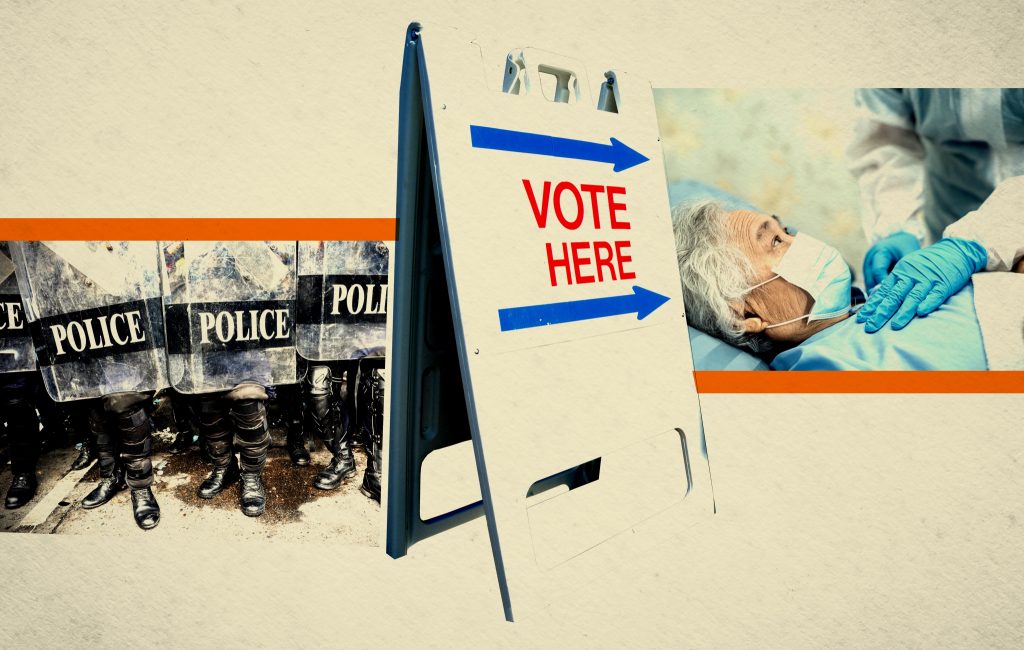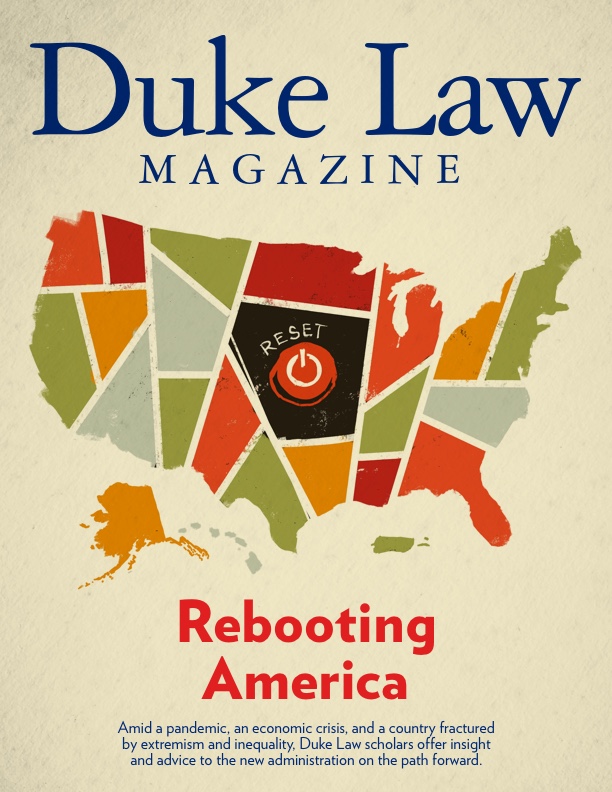
Civil rights | H. Timothy Lovelace, Jr.
Make good on the promise to restore the soul of America

Joe Biden’s campaign theme was to restore the soul of America. He was riffing off of Dr. King and the Southern Christian Leadership Conference’s motto. In 1957, King formed the SCLC, and their motto was “to redeem the soul of America.” When Biden launched his campaign, he spoke directly to what happened in Charlottesville, Va., and he said that the election was “a battle for the soul of America.” During Biden’s victory speech in November, he repeated that theme: He pledged to restore the soul of America, and he pledged to uproot systemic racism. As a legal historian of the civil rights movement, this turn of events is fascinating because Biden is in clear conversation with Dr. King’s legacy.
In thinking about restoring the soul of America it is worth noting that the Democrats have retaken the Senate. Now they’ll be able to advance a really serious legislative agenda in part because of the election of Rev. Raphael Warnock, the pastor of Dr. King’s former church, Ebenezer Baptist Church in Atlanta.
The Biden administration needs to put forth comprehensive civil rights reforms in the tradition of the Civil Rights Act of 1964. It has to touch key areas like criminal justice reform.
When both of these things come together, if Joe Biden is really trying to channel Dr. King’s legacy, I think that he could advance civil rights in a way in which no president has done since the 1960s. But he should act quickly on multiple fronts.
Under that rubric, to restore the soul of America, two parts unfold. The first is tackling the COVID-19 pandemic. Members of the African-American and the Latinx community, in particular, are being infected, suffering, and dying at disproportionate rates. Dr. King’s last campaign was the Poor People’s Campaign, and one of its major prongs was health care. He said it was an abiding scandal that America had so many health disparities across race and class lines and he demanded the “right to the full benefits of modern science and health care.” So to restore the soul of America, the Biden administration needs to be very thoughtful about how it delivers COVID-19 vaccinations and ensure equitable access to adequate treatment and testing, and, in fact, really recognize that racial minorities are bearing the pandemic’s brunt. Thinking about Dr. King’s legacy as it relates to health care and how this is playing out now, it’s critically important that this be priority number one.
But the pandemic has also both exposed and exacerbated deeper inequalities along every front — in finances, education, food security, housing, and environmental-protection. Vulnerable people are being rendered more vulnerable, and again, these are disproportionately people of color.
As the second part of seeking to restore the soul of America, the Biden administration needs to put forth comprehensive civil rights reforms in the tradition of the Civil Rights Act of 1964, in particular. Biden has talked extensively about ending systemic racism, and I’m heartened by that.
This has to be a very comprehensive approach. It has to touch key areas like criminal justice reform. We know, unfortunately, what happened with George Floyd and Breonna Taylor, and far too many others, and as the national outcry has demonstrated, criminal justice reform has to be a major area where the federal government should become involved. In some ways, relying on the federal government to end police misconduct is an uphill battle, because so much of the criminal justice system is actually about what state and local officials do. But the Biden administration can make meaningful criminal justice reforms like prioritizing thorough pattern and practice, investigating alleged police conduct, incentivizing more non-carceral approaches to public safety, and establishing a national registry to monitor police misconduct.
Under this comprehensive civil rights act, voting rights has to be central. Members of Congress have put forth the John Lewis Voting Rights Advancement Act, and that should be part of comprehensive civil rights reform. It goes really well with the idea of restoring the soul of America. John Lewis was brutally beaten on the Edmund Pettus Bridge, and that moment in Selma was instrumental to the passage of the Voting Rights Act of 1965.
The Supreme Court’s Shelby County v. Holder decision in 2013, gutted the Voting Rights Act of 1965. The John Lewis Voting Rights Advancement Act would expand pre-clearance, among other things, to give much needed voting protections nationally. We’re at a moment where we have an emaciated Voting Rights Act, and it’s interesting that the architects of voter discrimination are actually spreading baseless claims that they are [now] victims of voting discrimination. The Act would help to protect America against democratic backsliding, and voting rights portion of comprehensive civil rights bill should also include robust voting provisions like automatic voter registration and protections for early voting.
Education reform on every level is another essential element of comprehensive civil rights reform — ensuring free universal preschool, expanding Title I funding, and addressing the student-debt crisis, which disproportionately undermines the life chances of people of color who have attended higher education.
So if we keep these goals in areas such as health care, criminal justice reform, voting rights, and education reform under the banner of seeking to restore the soul of America, while not perfect in terms of framing, if we hold true to that vision and King’s vision and try to make that promise real, we will see massive civil rights reform.

